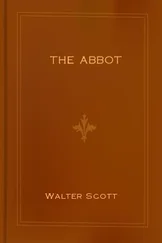Walter Scott - The Betrothed
Здесь есть возможность читать онлайн «Walter Scott - The Betrothed» весь текст электронной книги совершенно бесплатно (целиком полную версию без сокращений). В некоторых случаях можно слушать аудио, скачать через торрент в формате fb2 и присутствует краткое содержание. Год выпуска: 2004, Жанр: Старинная литература, на английском языке. Описание произведения, (предисловие) а так же отзывы посетителей доступны на портале библиотеки ЛибКат.
- Название:The Betrothed
- Автор:
- Жанр:
- Год:2004
- ISBN:нет данных
- Рейтинг книги:3 / 5. Голосов: 1
-
Избранное:Добавить в избранное
- Отзывы:
-
Ваша оценка:
- 60
- 1
- 2
- 3
- 4
- 5
The Betrothed: краткое содержание, описание и аннотация
Предлагаем к чтению аннотацию, описание, краткое содержание или предисловие (зависит от того, что написал сам автор книги «The Betrothed»). Если вы не нашли необходимую информацию о книге — напишите в комментариях, мы постараемся отыскать её.
The Betrothed — читать онлайн бесплатно полную книгу (весь текст) целиком
Ниже представлен текст книги, разбитый по страницам. Система сохранения места последней прочитанной страницы, позволяет с удобством читать онлайн бесплатно книгу «The Betrothed», без необходимости каждый раз заново искать на чём Вы остановились. Поставьте закладку, и сможете в любой момент перейти на страницу, на которой закончили чтение.
Интервал:
Закладка:
"This, then, is the Kist-vaen," said the shorter pilgrim; "and here we must abide tidings of our scout. But what, Philip Guarine, have we to expect as an explanation of the devastation which we have traversed?"
"Some incursion of the Welsh wolves, my lord," replied Guarine; "and, by Our Lady, here lies a poor Saxon sheep whom they have snapped up."
The Constable (for he was the pilgrim who had walked foremost) as he heard his squire speak, and saw the corpse of a man amongst the long grass; by which, indeed, it was so hidden, that he himself had passed without notice, what the esquire, in less abstracted mood, had not failed to observe. The leathern doublet of the slain bespoke him an English peasant—the body lay on its face, and the arrow which had caused his death still stuck in his back.
Philip Guarine, with the cool indifference of one accustomed to such scenes, drew the shaft from the man's back, as composedly as he would have removed it from the body of a deer. With similar indifference the Constable signed to his esquire to give him the arrow—looked at it with indolent curiosity, and then said, "Thou hast forgotten thy old craft, Guarine, when thou callest that a Welsh shaft. Trust me, it flew from a Norman bow; but why it should be found in the body of that English churl, I can ill guess."
"Some runaway serf, I would warrant—some mongrel cur, who had joined the Welsh pack of hounds," answered the esquire.
"It may be so," said the Constable; "but I rather augur some civil war among the Lords Marchers themselves. The Welsh, indeed, sweep the villages, and leave nothing behind them but blood and ashes, but here even castles seem to have been stormed and taken. May God send us good news of the Garde Doloureuse!"
"Amen!" replied his squire; "but if Renault Vidal brings it, 'twill be the first time he has proved a bird of good omen."
"Philip," said the Constable, "I have already told thee thou art a jealous-pated fool. How many times has Vidal shown his faith in doubt—his address in difficulty-his courage in battle-his patience under suffering?"
"It may be all very true, my lord," replied Guarine; "yet—but what avails to speak?—I own he has done you sometimes good service; but loath were I that your life or honour were at the mercy of Renault Vidal."
"In the name of all the saints, thou peevish and suspicious fool, what is it thou canst found upon to his prejudice?"
"Nothing, my lord," replied Guarine, "but instinctive suspicion and aversion. The child that, for the first time, sees a snake, knows nothing of its evil properties, yet he will not chase it and take it up as he would a butterfly. Such is my dislike of Vidal—I cannot help it. I could pardon the man his malicious and gloomy sidelong looks, when he thinks no one observes him; but his sneering laugh I cannot forgive—it is like the beast we heard of in Judea, who laughs, they say, before he tears and destroys."
"Philip," said De Lacy, "I am sorry for thee—sorry, from my soul, to see such a predominating and causeless jealousy occupy the brain of a gallant old soldier. Here, in this last misfortune, to recall no more ancient proofs of his fidelity, could he mean otherwise than well with us, when, thrown by shipwreck upon the coast of Wales, we would have been doomed to instant death, had the Cymri recognized in me the Constable of Chester, and in thee his trusty esquire, the executioner of his commands against the Welsh in so many instances?"
"I acknowledge," said Philip Guarine, "death had surely been our fortune, had not that man's ingenuity represented us as pilgrims, and, under that character, acted as our interpreter—and in that character he entirely precluded us from getting information from any one respecting the state of things here, which it behoved your lordship much to know, and which I must needs say looks gloomy and suspicious enough."
"Still art thou a fool, Guarine," said the Constable; "for, look you, had Vidal meant ill by us, why should he not have betrayed us to the Welsh, or suffered us, by showing such knowledge as thou and I may have of their gibberish, to betray ourselves?'
"Well, my lord," said Guarine, "I may be silenced, but not satisfied. All the fair words he can speak—all the fine tunes he can play—Renault Vidal will be to my eyes ever a dark and suspicious man, with features always ready to mould themselves into the fittest form to attract confidence; with a tongue framed to utter the most flattering and agreeable words at one time, and at another to play shrewd plainness or blunt honesty; and an eye which, when he thinks himself unobserved, contradicts every assumed expression of features, every protestation of honesty, and every word of courtesy or cordiality to which his tongue has given utterance. But I speak not more on the subject; only I am an old mastiff, of the true breed—I love my master, but cannot endure some of those whom he favours; and yonder, as I judge, comes Vidal, to give us such an account of our situation as it shall please him."
A horseman was indeed seen advancing in the path towards the Kist- vaen, with a hasty pace; and his dress, in which something of the Eastern fashion was manifest, with the fantastic attire usually worn by men of his profession, made the Constable aware that the minstrel, of whom they were speaking, was rapidly approaching them.
Although Hugo de Lacy rendered this attendant no more than what in justice he supposed his services demanded, when he vindicated him from the suspicions thrown out by Guarine, yet at the bottom of his heart he had sometimes shared those suspicions, and was often angry at himself, as a just and honest man, for censuring, on the slight testimony of looks, and sometimes casual expressions, a fidelity which seemed to be proved by many acts of zeal and integrity.
When Vidal approached and dismounted to make his obeisance, his master hasted to speak to him in words of favour, as if conscious he had been partly sharing Guarine's unjust judgment upon him, by even listening to it. "Welcome, my trusty Vidal," he said; "thou hast been the raven that fed us on the mountains of Wales, be now the dove that brings us good tidings from the Marches.—Thou art silent. What mean these downcast looks—that embarrassed carriage—that cap plucked down o'er thine eyes?—In God's name, man, speak!—Fear not for me—I can bear worse than tongue of man may tell. Thou hast seen me in the wars of Palestine, when my brave followers fell, man by man, around me, and when I was left well-nigh alone—and did I blench then?—Thou hast seen me when the ship's keel lay grating on the rock, and the billows flew in foam over her deck—did I blench then?—No—nor will I now."
"Boast not," said the minstrel, looking fixedly upon the Constable, as the former assumed the port and countenance of one who sets Fortune and her utmost malice at defiance—"boast not, lest thy bands be made strong." There was a pause of a minute, during which the group formed at this instant a singular picture.
Afraid to ask, yet ashamed to _seem to fear the ill tidings which impended, the Constable confronted his messenger with person erect, arms folded, and brow expanded with resolution: while the minstrel, carried beyond his usual and guarded apathy by the interest of the moment, bent on his master a keen fixed glance, as if to observe whether his courage was real or assumed.
Philip Guarine, on the other hand, to whom Heaven, in assigning him a rough exterior, had denied neither sense nor observation, kept his eye in turn, firmly fixed on Vidal, as if endeavouring to determine what was the character of that deep interest which gleamed in the minstrel's looks apparently, and was unable to ascertain whether it was that of a faithful domestic sympathetically agitated by the bad news with which he was about to afflict his master, or that of an executioner standing with his knife suspended over his victim, deferring his blow until he should discover where it would be most sensibly felt. In Guarine's mind, prejudiced, perhaps, by the previous opinion he had entertained, the latter sentiment so decidedly predominated, that he longed to raise his staff, and strike down to the earth the servant, who seemed thus to enjoy the protracted sufferings of their common master.
Читать дальшеИнтервал:
Закладка:
Похожие книги на «The Betrothed»
Представляем Вашему вниманию похожие книги на «The Betrothed» списком для выбора. Мы отобрали схожую по названию и смыслу литературу в надежде предоставить читателям больше вариантов отыскать новые, интересные, ещё непрочитанные произведения.
Обсуждение, отзывы о книге «The Betrothed» и просто собственные мнения читателей. Оставьте ваши комментарии, напишите, что Вы думаете о произведении, его смысле или главных героях. Укажите что конкретно понравилось, а что нет, и почему Вы так считаете.





